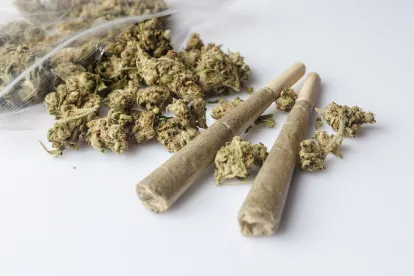Following the passage of the 2018 Farm Bill, hemp and hemp-derived products are no longer controlled substances.1However, these products are still regulated and most comply with laws and regulations administered by the United States Food and Drug Administration (FDA) and Wisconsin’s industrial hemp pilot program.
On April 2, 2019, outing FDA Commissioner Scott Gottlieb issued a statement providing industry stakeholders additional direction on the regulatory path ahead, and outlining recent compliance actions against companies marketing cannabidiol (CBD) products with egregious, unsubstantiated health claims.2
Public Hearing, Agency Working Group, and Notice-and-Comment Rulemaking
The statement reiterated the agency’s commitment to protecting patients and the public, while exploring a “framework for the lawful marketing of appropriate cannabis and cannabis-derived products under existing regulatory authority.” As the first step in this process, the FDA scheduled a public hearing for May 31, 2019 to accept comment on the agency’s regulatory strategy relating to cannabis-derived products and lawful pathways to market these products.
Commissioner Gottlieb also restated the FDA’s current treatment of cannabis and cannabis-derived compounds:
- Products marketed with a claim of therapeutic benefit must be approved by the FDA before being sold in interstate commerce.
- It is unlawful to introduce food containing added CBD or THC into interstate commerce, or to market CBD or THC as dietary supplements.
The Commissioner stated that the only path forward for the FDA to allow such uses is through notice-and-comment rulemaking. This is a long process that could take years to complete. However, the FDA also announced a high-level agency working group exploring pathways for food and dietary supplements to be lawfully marketed. The working group may begin sharing its findings as early as this summer.
The FDA also updated its FAQs to clarify its position on cannabis derived products. Whether or not these products are legal depends on their intended use, labeling and marketing. Another important consideration is whether the product has traveled in interstate commerce, or is exclusively a product of intrastate commerce.
Both THC and CBD are subject to FDA regulation because they are either active ingredients in drugs or the subject of substantial clinical investigations. Because of this status, the FDA has stated CBD and THC may not be sold as dietary supplements or added to food sold in interstate commerce.
Compliance Actions – “egregious, over-the-line claims”
Importantly for those in the CBD processing and retail business, the FDA identified recent compliance letters sent to companies making “egregious, over-the-line claims” regarding the health benefits of CBD products. These letters were sent in collaboration with the Federal Trade Commission.
The companies marketed their products to vulnerable populations with “egregious claims about their products’ ability to limit, treat or cure cancer, neurodegenerative conditions, autoimmune diseases, opioid use disorder, and other serious diseases, without sufficient evidence and the legally required FDA approval.”
The FDA stressed its concern that products with unsubstantiated therapeutic claims can put patients and consumers at risk and may direct some patients away from appropriate, recognized therapies to treat serious and even fatal diseases.
Conclusion
A long path remains before new regulations will be issued surrounding acceptable uses of CBD in food and dietary supplements. Importantly for CBD processors and retailers, the announcement gives some additional direction on the types of market conduct the agency will take enforcement action against.
Please do not hesitate to contact us with additional questions or concerns surrounding CBD, the 2018 Farm Bill, or Wisconsin’s industrial hemp pilot program.
1 Cannabis containing more than 0.3 percent THC on a dry weight basis remains a controlled substance under federal law and Wisconsin law.
2 Statement from FDA Commissioner Scott Gottlieb, M.D. on new steps to advance agency’s continued evaluation of potential regulatory pathways for cannabis-containing and cannabis derived products, April 2, 2019, available here. Commissioner Gottlieb’s last day in office was April 5, 2019.



 />i
/>i
